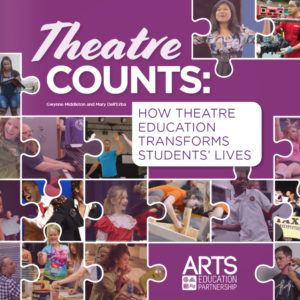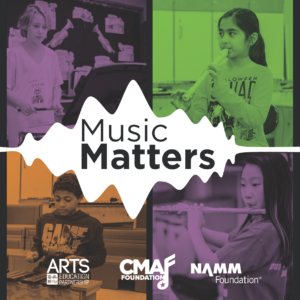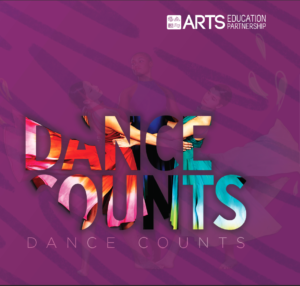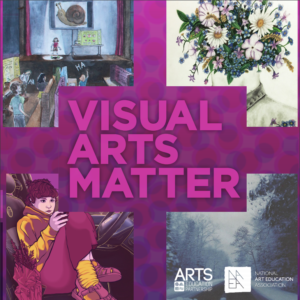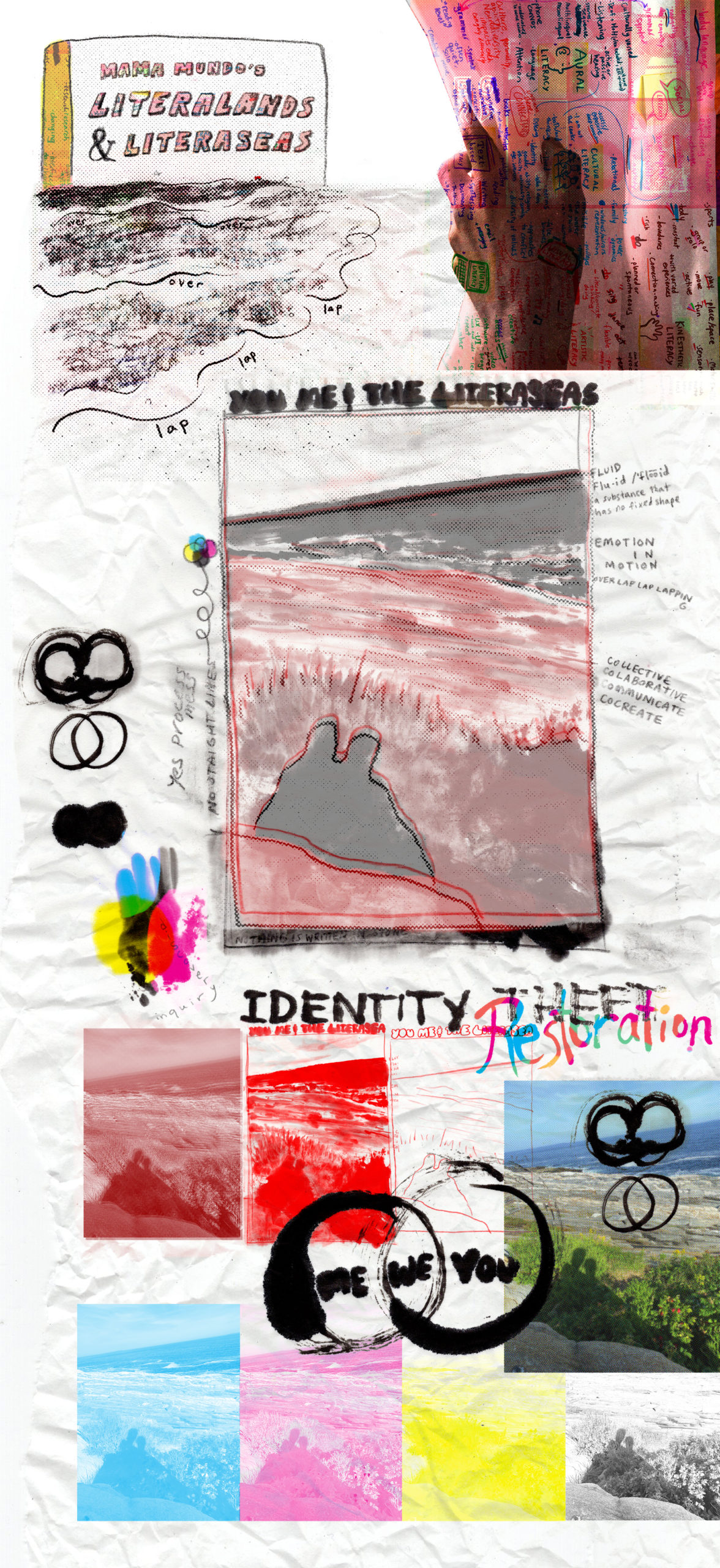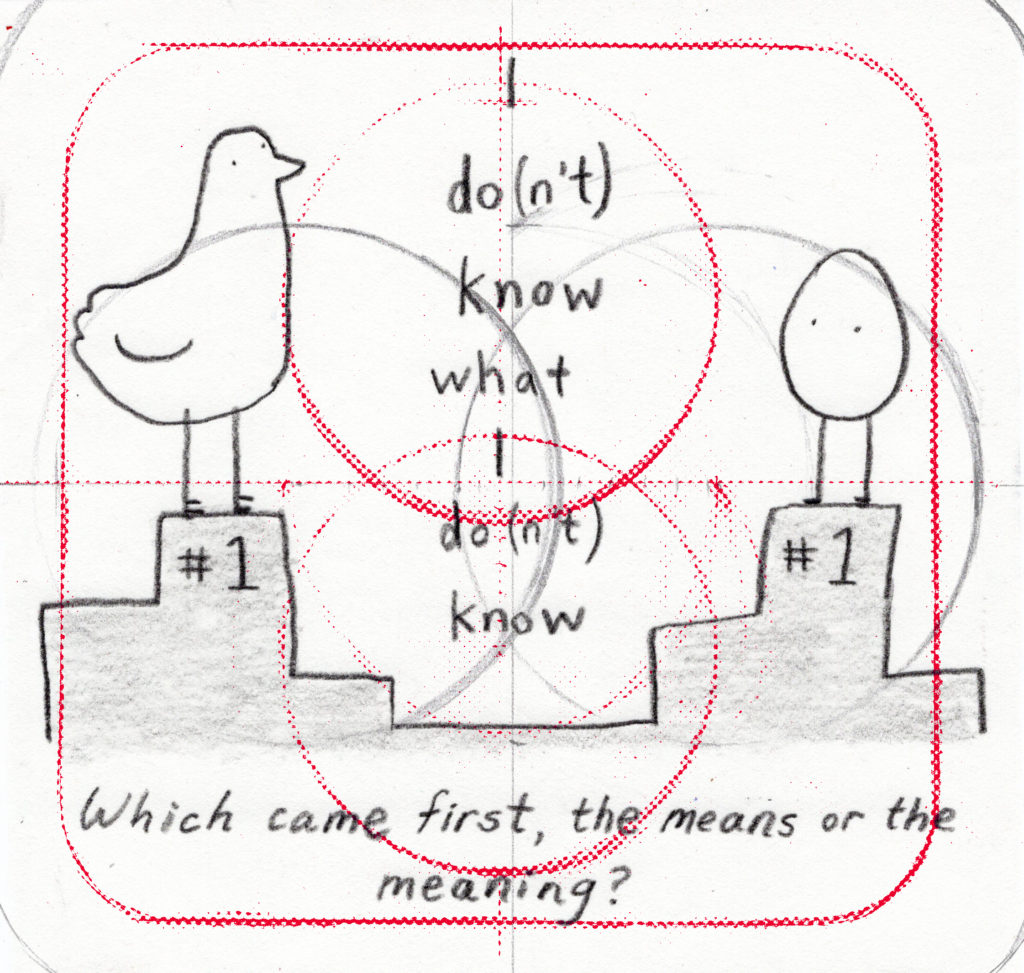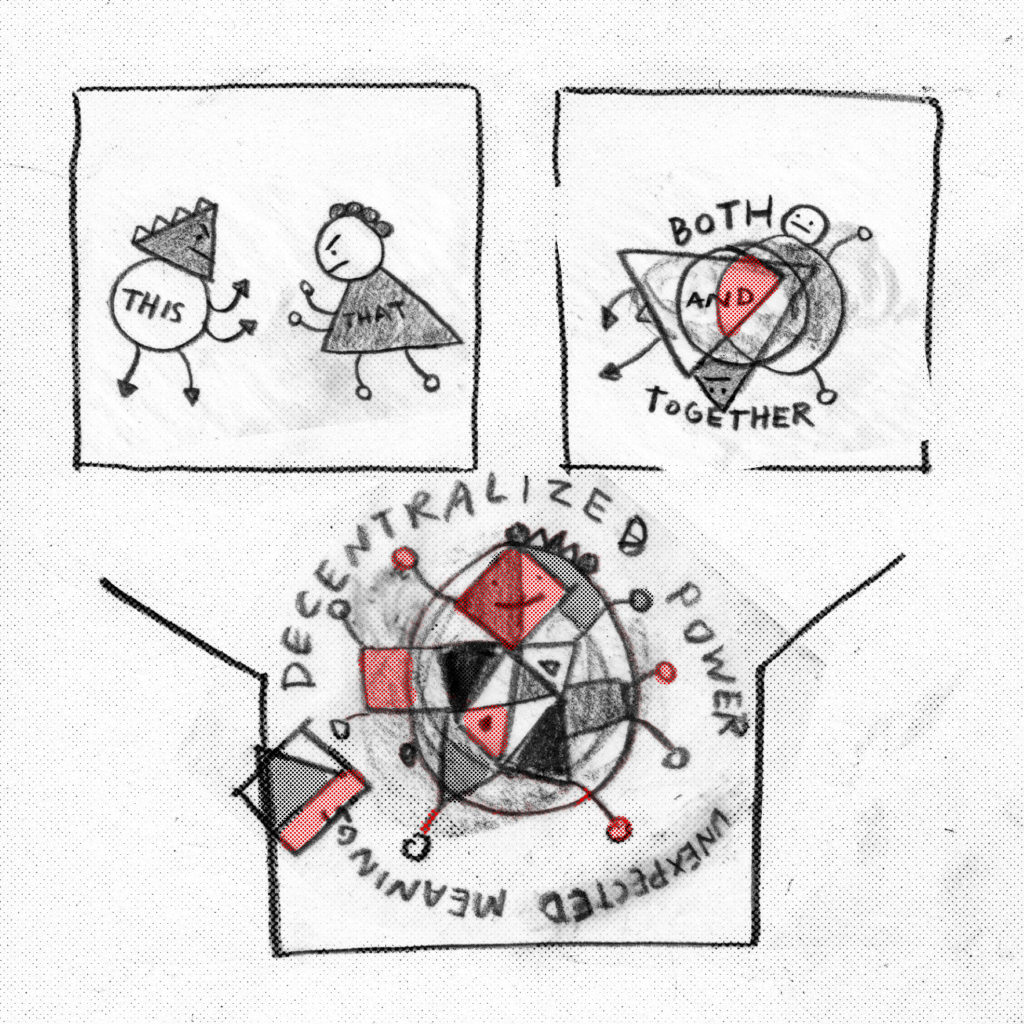
How Theatre Education Transforms Students' Lives

On stage, the audience sees a young person bow at the end of a theatre production. What the audience may not see: the hours of rehearsal spent preparing for this moment; their classmates poised on the catwalk shining the stage light to capture the performer’s joy; the costumers’ research, drawings, and design; the audio technician’s artful and precise balance of sound; and the stage manager creating harmony among the performers and the crew. The audience may not recognize that they are seeing the result of years of training and commitment on the part of educators to support students. Theatre education benefits are numerous and powerful and exist across student populations, age levels and learning environments.
Theatre education can help young people develop a strong sense of self and identity, build empathy and learning among peers and broaden the ways they make meaning of the world around them. Yet the last comprehensive arts education study, examining the state of art education during the 2008-09 school year, found that only 4% of all public elementary schools offered theatre instruction, and less than 50% of public secondary schools offered theatre instruction during the school day. Additional data from a 2012 Americans for the Arts report suggest that fewer schools offered theatre courses during the school day (79% sampled) than offer extracurricular theatre (95% sampled). addition, wealthier students are more likely to receive theatre education during the school day (41-56%) than students in schools with higher concentrations of poverty (28%). These numbers highlight a general lack of access to theatre education, and underline the need for continued research and data collection.
Limiting theater opportunities to after-school participation can create barriers to access for students from lower-income families, who are more likely to have limited access to transportation and competing demands of employment and/or child-care responsibilities. The lack of curricular resources can also limit access in high-poverty schools. A 2012 Educational Theatre Association Survey of Theatre Education in United States High Schools found that over half of theatre teachers reported having no access to required instructional resources, including dedicated performance space, set construction space, and storage space for costumes, props and scenery.
For this Special Report, the Arts Education Partnership reviewed research studies identified within ArtsEdSearch (the national clearinghouse of arts education research), the International Journal of Education and the Arts and the Journal of Autism and Developmental Disorders to explore the importance of theatre in student learning and academic and personal growth. While most of the research shared in this report focuses on performative theatre, AEP recognizes the importance of technical theatre, which offers similar developmental benefits and important pathways for careers but has not been researched as extensively. The featured studies show theatre’s positive impact on student success and bolster findings that theatre education:
- Promotes identity development and growth.
- Builds empathy and relationships among peers.
- Empowers participants to transform their understanding of their place in the world.

Theatre Education is an interdisciplinary form of learning that encompasses dramatic interpretation, writing, multimedia production and technical skill through the artistic processes of creating, performing, responding and connecting. A comprehensive theatre education includes instruction in acting, designing, writing, producing/directing and dramaturgy, all of which nurture the human need to express thoughts and feelings through storytelling. The terms “theatre education” and “drama education” are often used interchangeably, but for the purposes of this report, AEP uses the term “theatre” in alignment with our partner organizations and in a way that is inclusive of the many different types of theatre instruction that exist.
Technical Theatre includes the broad array of creative design and hands-on activities and products that establish the visual, aural and aesthetic products of a given theatrical presentation before and during the production. Technical theatre instruction addresses the varied skills and knowledge necessary to help students become competent technicians. Along with gaining an understanding of the science and math implicit in every aspect of technical theatre, student technicians learn how to safely and effectively apply their training to design and build sound and lighting systems, costumes, makeup, sets, props and more to construct the world of a play inhabited by actors and experienced by audiences.
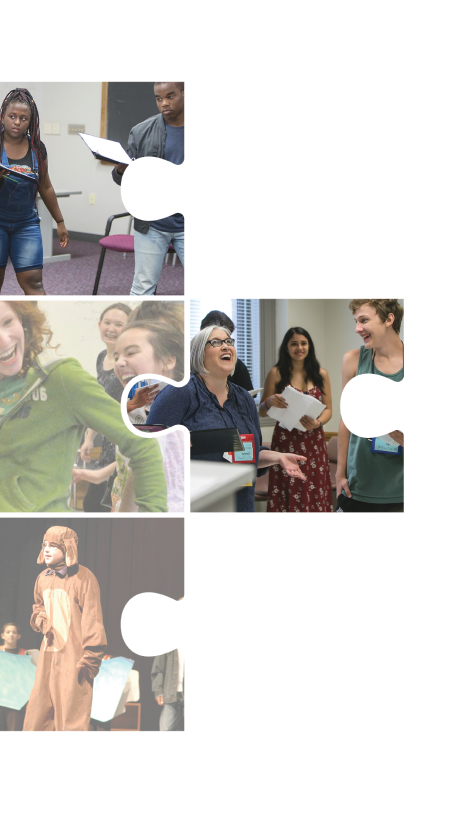
Develops Self Concept and Identity
Enhances Self-Concept
A 2019 experiential design study investigating the effect of improvisational theatre classes on elementary-age children found a positive effect on self-concept, particularly with students who began the classes with a lower self-concept. By engaging students in learning processes that rely on community interaction, personal spontaneity, commitment to group performance and being present in the moment, improvisational theatre education encourages students to take creative risks. A study of elementary-aged children engaged in creative dramatic experiences found that young children who experience higher levels of personal distresscan cultivate emotional control and resiliency through play-based expression and physicalizing emotional states and traits. A study of middle school girls engaged in theatre education demonstrates that certain teaching strategies can support positive self-concept by encouraging a de-centering of knowledge and authority and empowering students to co-create a collaborative, affirming learning environment.
Cultivates Positive Sense
of Personal Identity
When students find their personal identity in conflict with others, inclusive theatre education programs can provide safe spaces for young people to explore who they are. A study of the narrative-performance process of workshops, discussion, writing and performance promoted positive youth development among youth who identify as LGBTQI+.. Through their theatre education experiences, students gained confidence in the value of their personal identities and were able to explore “possible selves” through performing character identities. Another study on community-based arts programming for LGBTQI+ young adults showed that participants learned ways to communicate emotion and personal meaning about their sexual identities and conflicts within their cultures.
Prepares Educators to Create
Empowering Learning Environments
Theatre education can be vital in helping young people to develop their self-concept and identity, as well as to question pre-conceived notions of who they should be. Professional development that encourages teachers to question their own preconceived notions of students identity can help ensure that students’ theatre education experiences are both high-quality and transformative. Researchers who studied a year-long preschool educator professional development program that integrated drama strategies into literacy practices found that the strategies helped teachers rethink their implicit biases about children’s learning identities and abilities. Another study conducted in a conventional high school drama classroom setting found that teachers who are critically conscious of restrictive gender norms depicted in plays can help guide students to deconstruct those norms within a safe space. A third study found that when pre-service drama teachers are trained to be aware of their beliefs and biases about student populations, they can positively impact how they work with students.
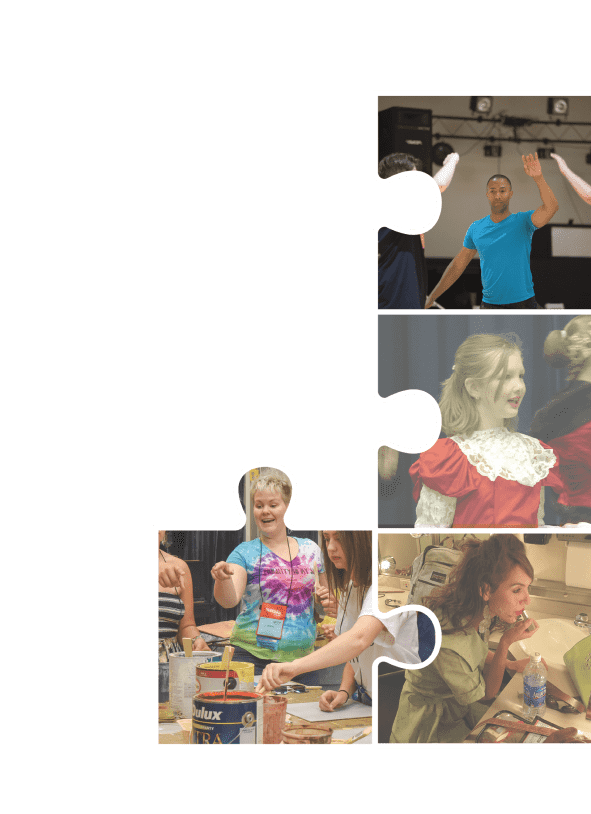
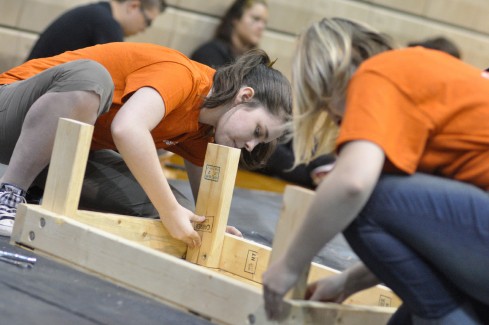
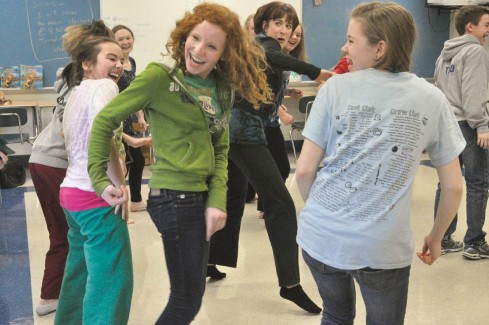
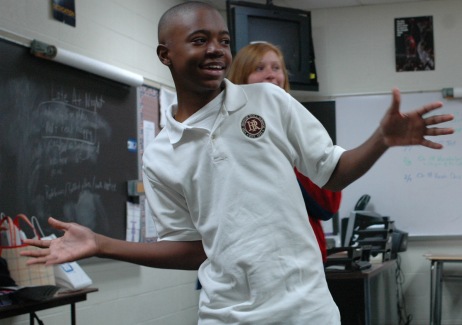
Improves Peer Relations and Empathy for Others
Builds Prosocial Behavior
Theatre education programming helps students develop pro-social behaviors and problem-solving and creative thinking skills. These competencies are key to developing both strong peer relationships and sensitivity and empathy to and for others. In one study, researchers found that elementary-aged students participating in a school-based youth violence prevention theatre program, focused on rehearsing and performing conflict scenarios, demonstrated an increase in levels of all measured prosocial behaviors, including cooperation, assertiveness and self-control. Another study following middle school students in an after-school drama program concluded that students engaged in theatre education strategies develop self-efficacy and conflict resolution skills with peers. A similar study of middle school students found that those who participated in targeted drama programs are less likely to engage in harmful behaviors.
Encourages Students to Embody Other Perspectives
Students who participate in theatre education programs have the unique experience of learning how to authentically embody people and ideas different from their own, improving their understanding of differences and fostering empathy for others. Researchers who observed a program of “playback theatre” for adolescents in South Africa, where participants’ life stories are acted out by peers, found that this improvisational theatre form helped the storyteller explore their own life from a different perspective, while offering actors the opportunity to empathize with a peer’s life. Another qualitative study examining middle school students’ experiences in a process drama program concluded that this teaching method engages participants in an artistic process that builds communication and collaboration skills, as well as trust in their peers.
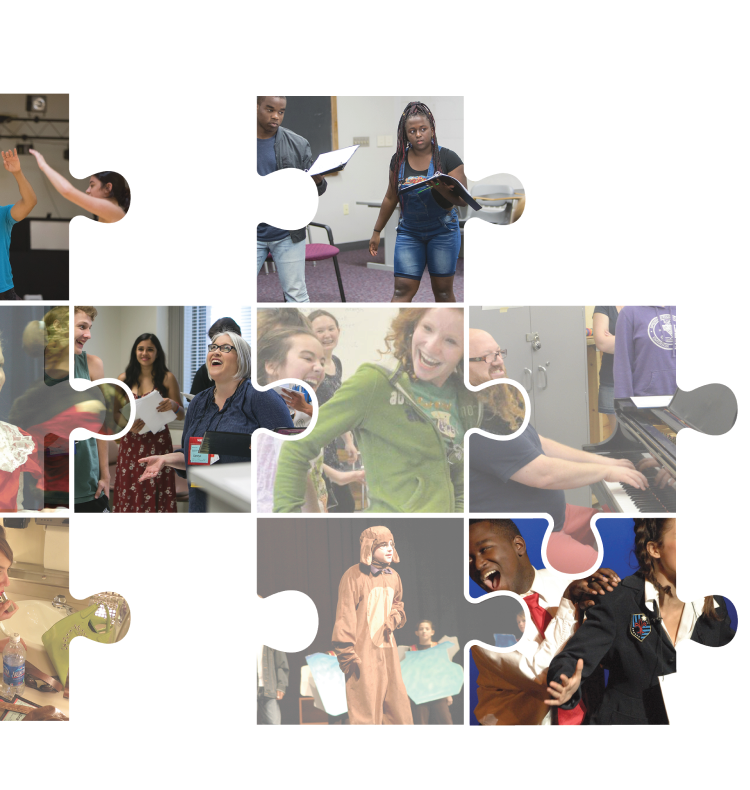
Transforms Learning Across Subject Areas
Improves Learning Outcomes Through Creative Thinking
Integrating drama pedagogy into classrooms can build creative and critical thinking skills that foster positive learning outcomes across age groups and student populations. For younger learners, classroom theatre activities can transform the reading experience from one of merely decoding texts to embodied interpretation. In a two-year case study of a middle school history classroom with drama integrated instruction, researchers observed that the drama strategies not only actively engaged students in their learning process, but also offered additional pathways to assess learning. In a study of high school students in a French immersion class, researchers found that the students who received drama-based instruction made better connections to the curricular content. As a result, they developed enhanced literacy skills and increased their emotional intelligence.
Expands Understanding of Self in Relation to the World
Theatre education’s focus on creative thinking fosters awareness of the world beyond the self. One study found that applied drama and theatre directly help students become agents of change in their lives. By building community cohesion and empowerment, plays written, produced and performed by peers offered students a way to conceive of change in the larger world. Similarly, when theatre becomes a safe space for students to express vulnerability and authenticity, young people can be empowered to value vulnerability as an asset and more actively engage with the community beyond the theatre classroom. While these types of social and emotional learning skills honed through theatre education experiences can benefit all young people, one study found additional positive social-emotional outcomes for children with autism.
Theatre Counts
Theatre education research shows the power of the art form to transform students’ experiences of themselves as well as their relationships with peers and the larger world. The process and product of theatre learning incorporates creative and technical skills across many learning disciplines. Access to adequately resourced and standards-based theatre education during the school day is an important factor in promoting high-quality theatre experiences. As educators play a crucial role in nurturing student, educator preparation and professional development opportunities in multiple subject areas are also critical factor in effective theatre education. The process and the product of theatre learning incorporate creative and technical skills across many learning disciplines, and educators can play a crucial role in nurturing student success throughout their personal, academic and professional lives.
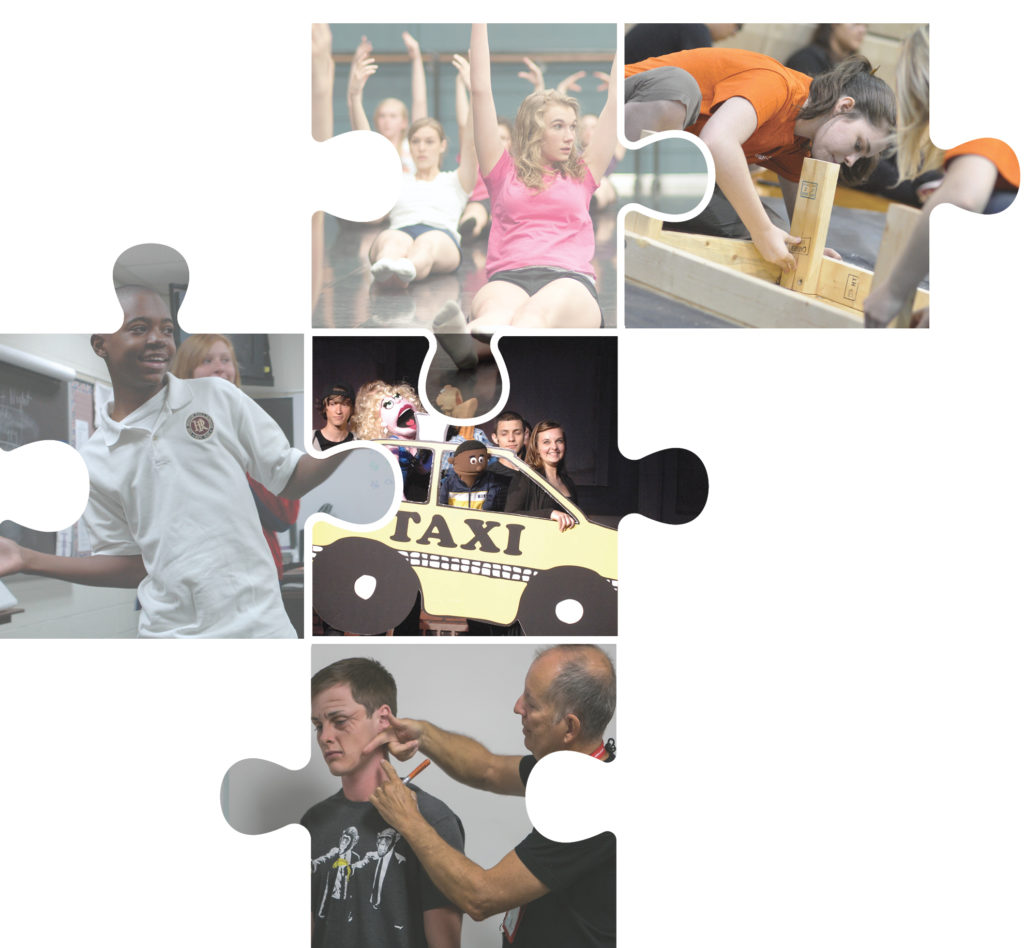
Acknowledgments
The Arts Education Partnership appreciates the generous support from the Hewlett Foundation for the preparation of this brief. AEP thanks the Educational Theatre Association and the American Alliance for Theatre & Education for serving as reviewers and for sharing photographs for this publication.
This report is the fourth installment in AEP’s series, Arts Count, describing the researched benefits of arts education.
About

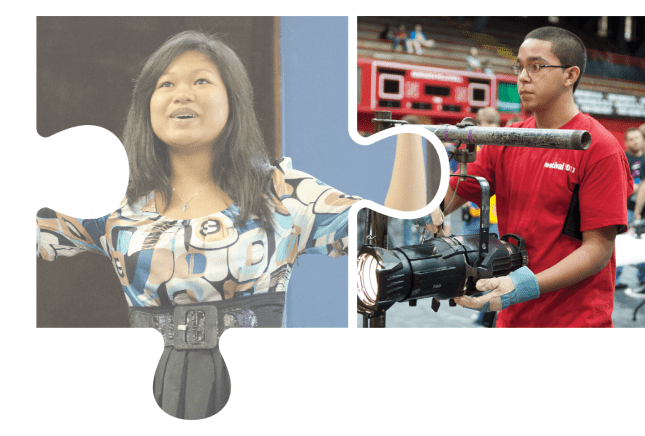

Mary Dell’Erba
Senior Project Manager
As senior project manager for the Arts Education Partnership, Mary oversees project work plans and supports the development of AEP deliverables. Prior to joining Education Commission of the States, she worked for the Arts Education in Maryland Schools Alliance, where she served in a variety of capacities in programming, administration and policy. With over 20 years of dance training, Mary is passionate about the arts and education. Contact Mary at mdell’erba@ecs.org.

Gwynne Middleton
Previous AEP Communications Specialist
As the communications specialist for the Arts Education Partnership at Education Commission of the States, Gwynne focuses on communications strategies that create a strong brand for the organization. Prior to joining Education Commission of the States, Gwynne served as a legislative editor with the nonpartisan drafting office at the Colorado General Assembly and as an educator at middle schools, high schools and universities in the U.S. and abroad. Gwynne believes that access to high-quality arts education can positively impact youth, and she is excited to apply a background in writing and visual arts to her role here.

